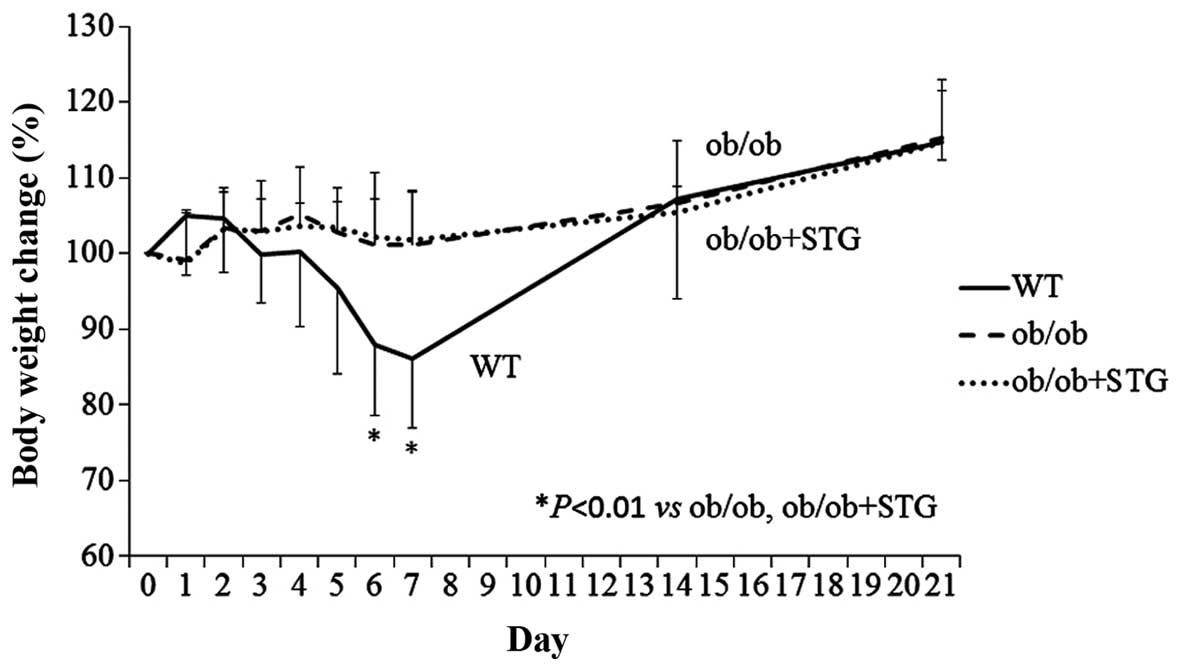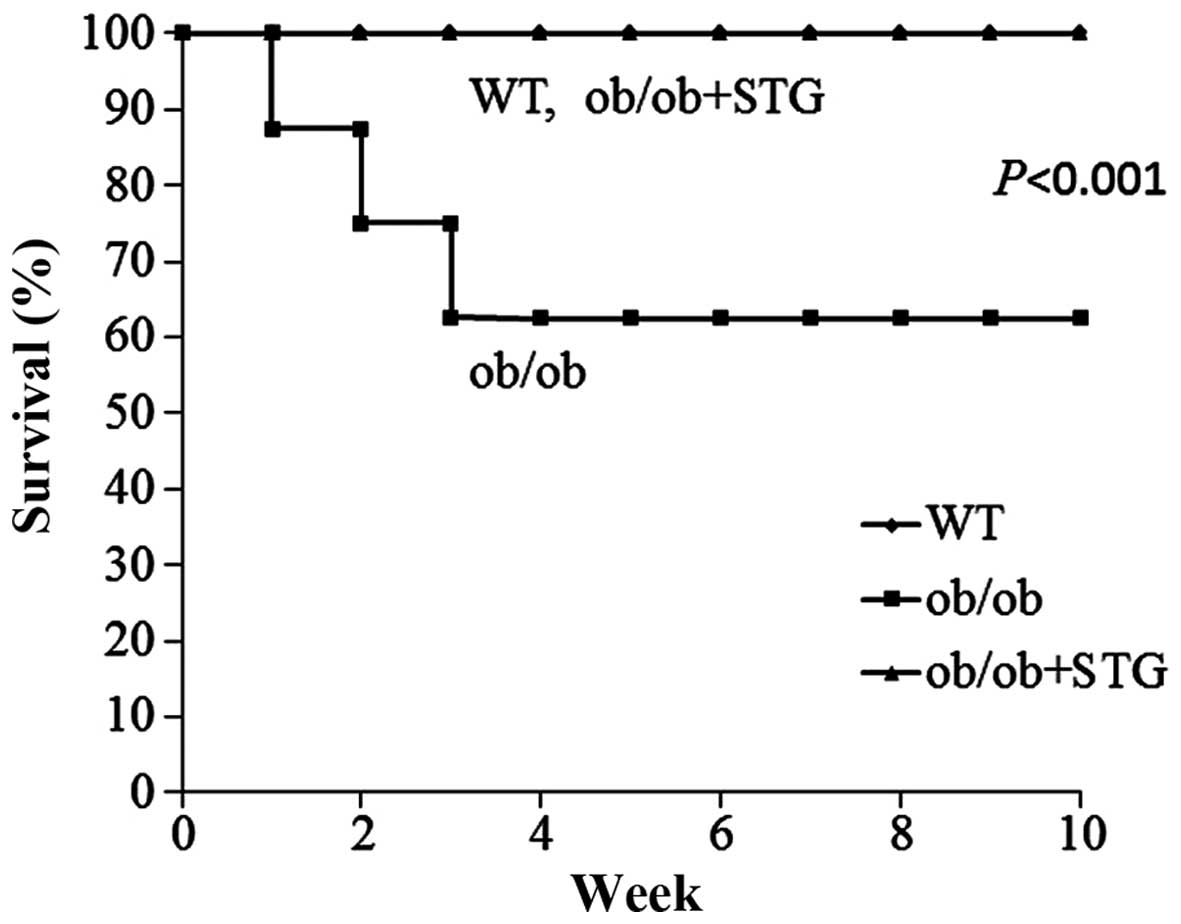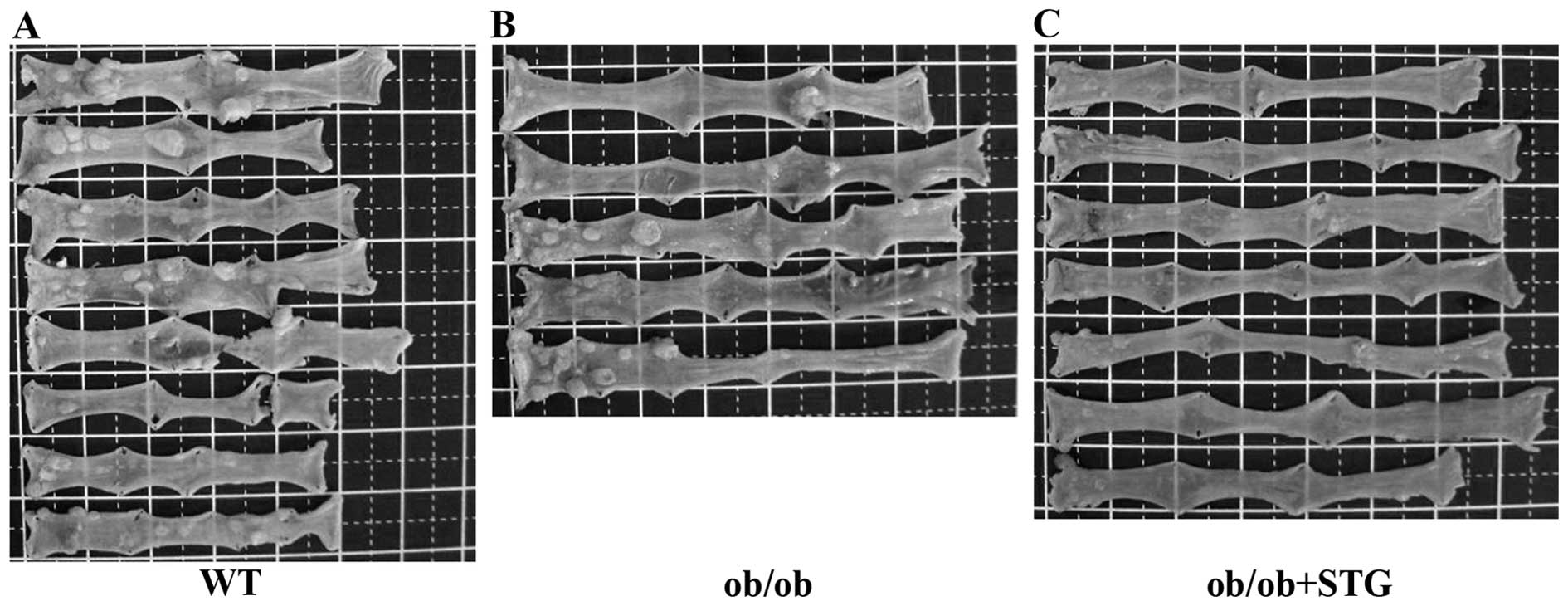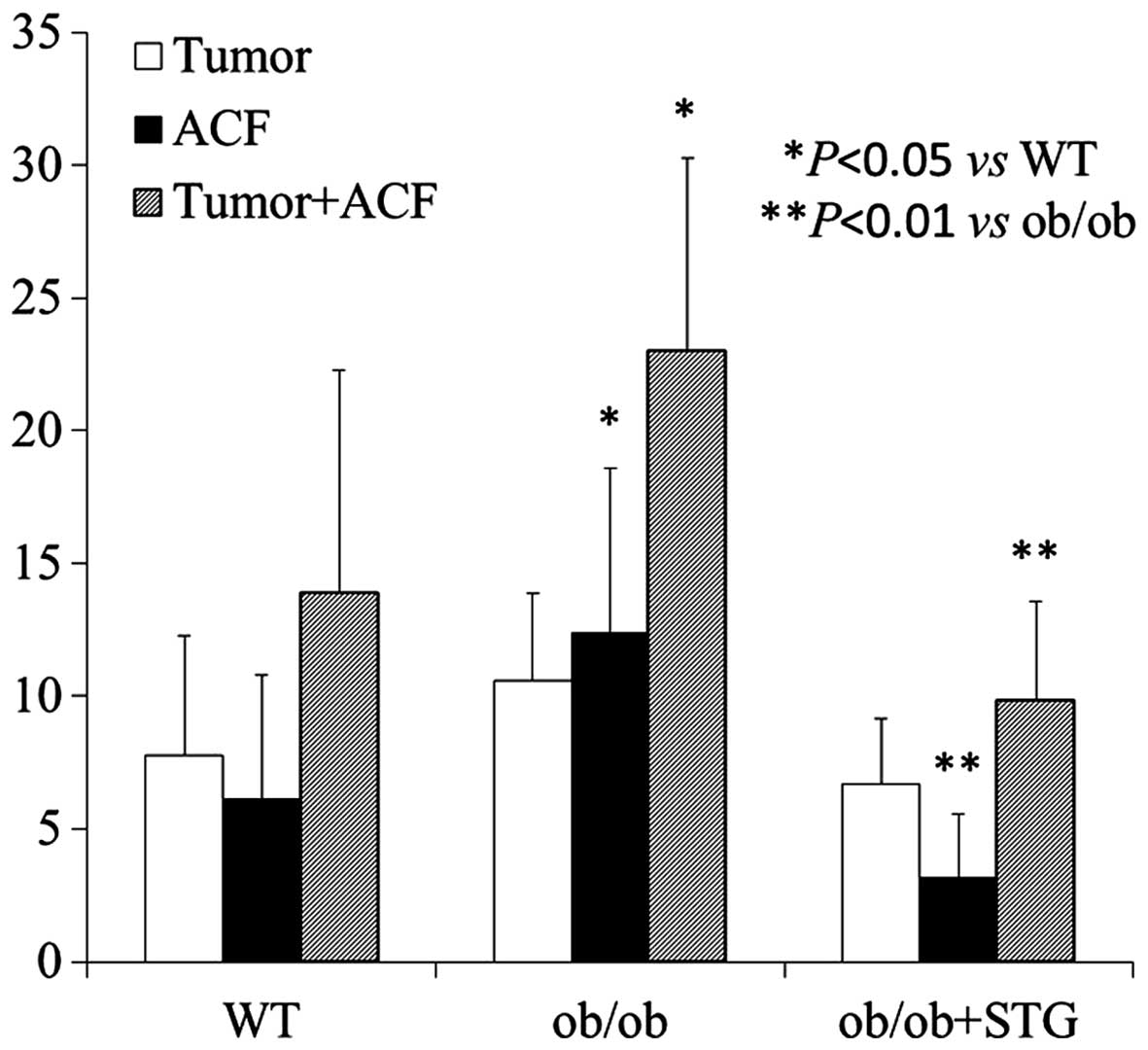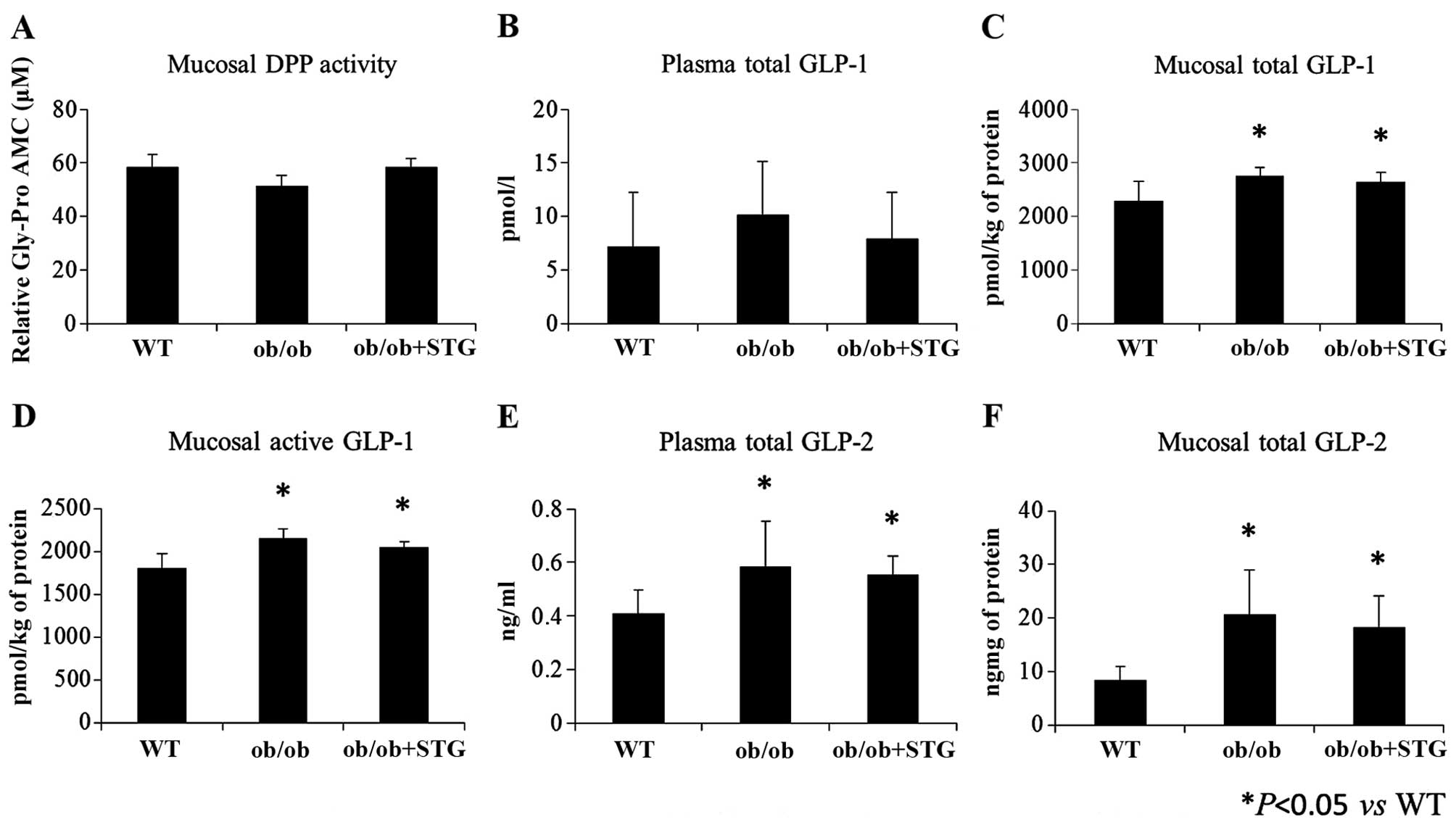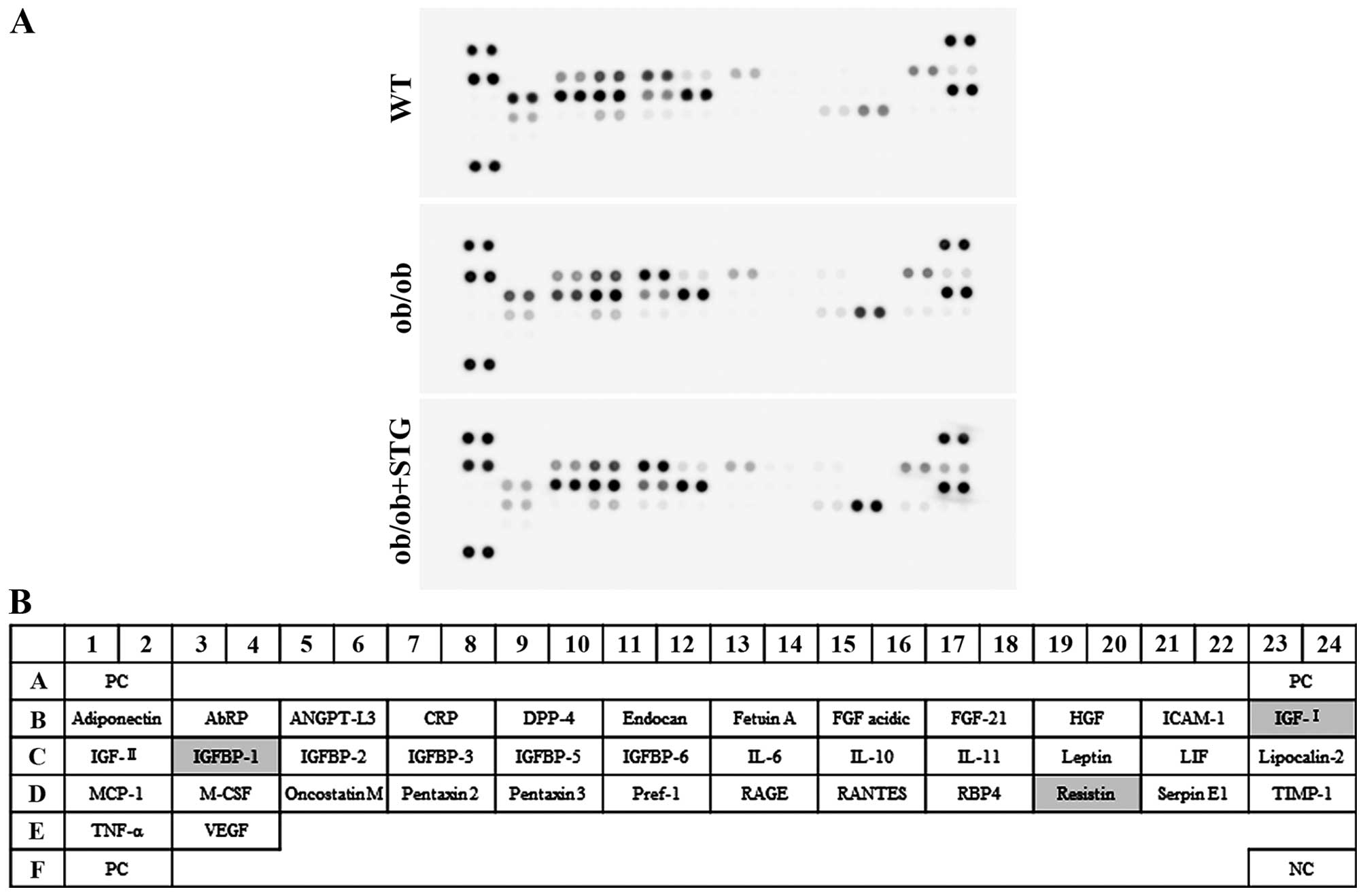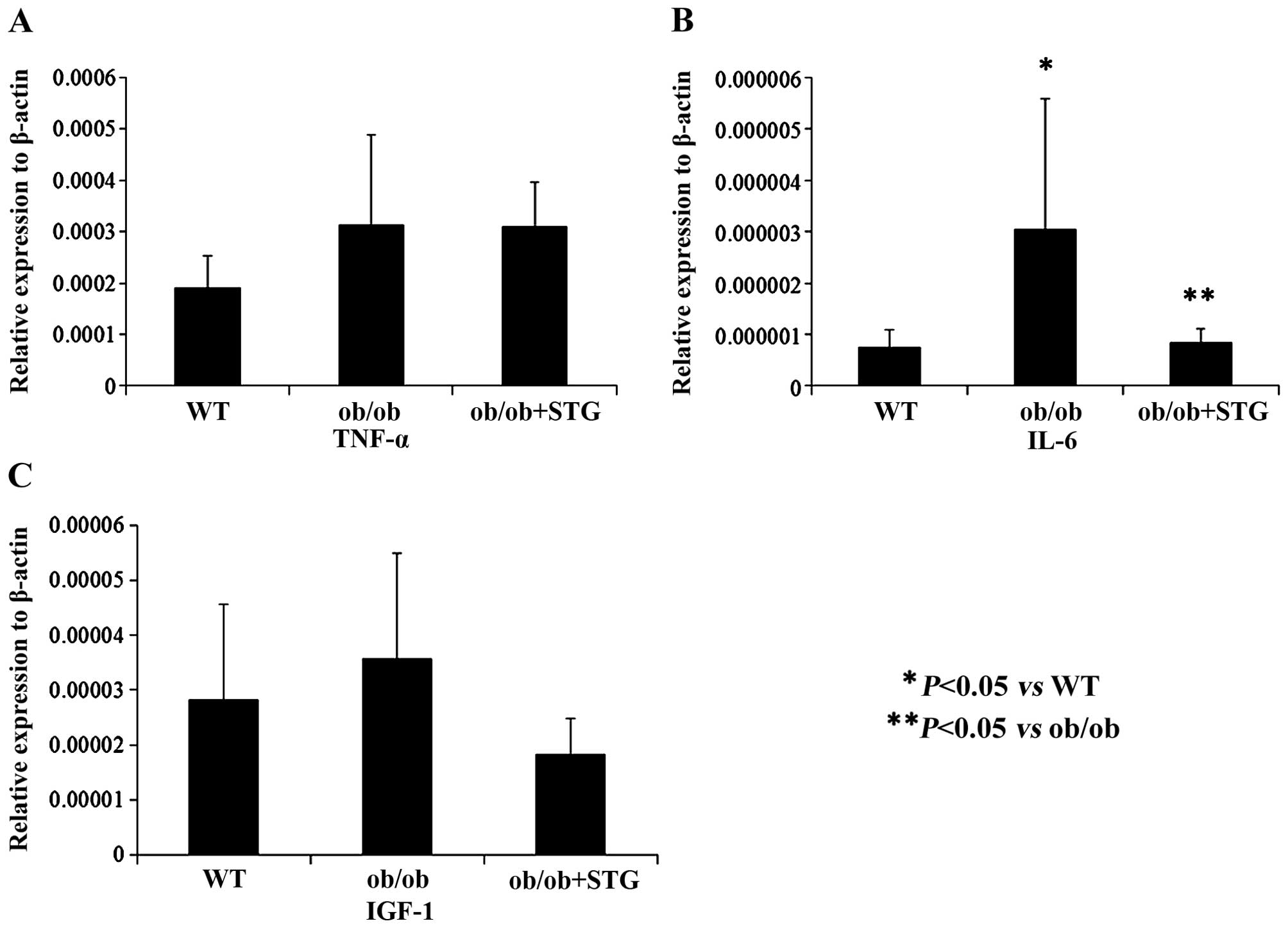|
1
|
Tsugane S and Inoue M: Insulin resistance
and cancer: Epidemiological evidence. Cancer Sci. 101:1073–1079.
2010. View Article : Google Scholar : PubMed/NCBI
|
|
2
|
Neville SE, Boye KS, Montgomery WS,
Iwamoto K, Okamura M and Hayes RP: Diabetes in Japan: A review of
disease burden and approaches to treatment. Diabetes Metab Res Rev.
25:705–716. 2009. View Article : Google Scholar : PubMed/NCBI
|
|
3
|
Siegel R, Naishadham D and Jemal A: Cancer
statistics, 2013. CA Cancer J Clin. 63:11–30. 2013. View Article : Google Scholar : PubMed/NCBI
|
|
4
|
Katanoda K, Matsuda T, Matsuda A, Shibata
A, Nishino Y, Fujita M, Soda M, Ioka A, Sobue T and Nishimoto H: An
updated report of the trends in cancer incidence and mortality in
Japan. Jpn J Clin Oncol. 43:492–507. 2013. View Article : Google Scholar : PubMed/NCBI
|
|
5
|
Huang XF and Chen JZ: Obesity, the
PI3K/Akt signal pathway and colon cancer. Obes Rev. 10:610–616.
2009. View Article : Google Scholar : PubMed/NCBI
|
|
6
|
Berster JM and Göke B: Type 2 diabetes
mellitus as risk factor for colorectal cancer. Arch Physiol
Biochem. 114:84–98. 2008. View Article : Google Scholar : PubMed/NCBI
|
|
7
|
Reimer MK, Holst JJ and Ahrén B: Long-term
inhibition of dipeptidyl peptidase IV improves glucose tolerance
and preserves islet function in mice. Eur J Endocrinol.
146:717–727. 2002. View Article : Google Scholar : PubMed/NCBI
|
|
8
|
Nadkarni P, Chepurny OG and Holz GG:
Regulation of glucose homeostasis by GLP-1. Prog Mol Biol Transl
Sci. 121:23–65. 2014. View Article : Google Scholar : PubMed/NCBI
|
|
9
|
Frezza EE, Wachtel MS and
Chiriva-Internati M: The multiple faces of glucagon-like peptide-1
- obesity, appetite, and stress: What is next? A review. Dig Dis
Sci. 52:643–649. 2007. View Article : Google Scholar : PubMed/NCBI
|
|
10
|
Takasaki K, Takada H, Nakajima T, Ueno K,
Ushiki J and Higo K: Involvement of the active metabolites in the
inhibitory activity of K579 on rat plasma dipeptidyl peptidase IV.
Eur J Pharmacol. 505:237–241. 2004. View Article : Google Scholar : PubMed/NCBI
|
|
11
|
Takasaki K, Nakajima T, Ueno K, Nomoto Y
and Higo K: Effects of combination treatment with dipeptidyl
peptidase IV inhibitor and sulfonylurea on glucose levels in rats.
J Pharmacol Sci. 95:291–293. 2004. View Article : Google Scholar : PubMed/NCBI
|
|
12
|
Dubé PE and Brubaker PL: Frontiers in
glucagon-like peptide-2: Multiple actions, multiple mediators. Am J
Physiol Endocrinol Metab. 293:E460–E465. 2007. View Article : Google Scholar : PubMed/NCBI
|
|
13
|
Drozdowski L and Thomson AB: Intestinal
hormones and growth factors: Effects on the small intestine. World
J Gastroenterol. 15:385–406. 2009. View Article : Google Scholar : PubMed/NCBI
|
|
14
|
Hartmann B, Thulesen J, Kissow H, Thulesen
S, Orskov C, Ropke C, Poulsen SS and Holst JJ: Dipeptidyl peptidase
IV inhibition enhances the intestinotrophic effect of glucagon-like
peptide-2 in rats and mice. Endocrinology. 141:4013–4020.
2000.PubMed/NCBI
|
|
15
|
Boushey RP, Yusta B and Drucker DJ:
Glucagon-like peptide 2 decreases mortality and reduces the
severity of indomethacininduced murine enteritis. Am J Physiol.
277:E937–E947. 1999.PubMed/NCBI
|
|
16
|
Fujiwara K, Inoue T, Yorifuji N, Iguchi M,
Sakanaka T, Narabayashi K, Kakimoto K, Nouda S, Okada T, Ishida K,
et al: Combined treatment with dipeptidyl peptidase 4 (DPP4)
inhibitor sitagliptin and elemental diets reduced
indomethacin-induced intestinal injury in rats via the increase of
mucosal glucagonlike peptide-2 concentration. J Clin Biochem Nutr.
56:155–162. 2015. View Article : Google Scholar : PubMed/NCBI
|
|
17
|
Inoue T, Higashiyama M, Kaji I, Rudenkyy
S, Higuchi K, Guth PH, Engel E, Kaunitz JD and Akiba Y: Dipeptidyl
peptidase IV inhibition prevents the formation and promotes the
healing of indomethacin-induced intestinal ulcers in rats. Dig Dis
Sci. 59:1286–1295. 2014. View Article : Google Scholar : PubMed/NCBI
|
|
18
|
Iakoubov R, Lauffer LM, Trivedi S, Kim YI
and Brubaker PL: Carcinogenic effects of exogenous and endogenous
glucagon-like peptide-2 in azoxymethane-treated mice.
Endocrinology. 150:4033–4043. 2009. View Article : Google Scholar : PubMed/NCBI
|
|
19
|
Yu DM, Yao TW, Chowdhury S, Nadvi NA,
Osborne B, Church WB, McCaughan GW and Gorrell MD: The dipeptidyl
peptidase IV family in cancer and cell biology. FE BS J.
277:1126–1144. 2010. View Article : Google Scholar
|
|
20
|
Inoue T, Murano M, Yoda Y, Kuramoto T,
Kakimoto K, Ishida K, Kawakami K, Abe Y, Morita E, Murano N, et al:
R-etodolac induces E-cadherin and suppresses colitis-related mouse
colon tumorigenesis. Oncol Rep. 24:1487–1492. 2010.PubMed/NCBI
|
|
21
|
Femia AP, Raimondi L, Maglieri G, Lodovici
M, Mannucci E and Caderni G: Long-term treatment with Sitagliptin,
a dipeptidyl peptidase-4 inhibitor, reduces colon carcinogenesis
and reactive oxygen species in 1,2-dimethylhydrazine-induced rats.
Int J Cancer. 133:2498–2503. 2013. View Article : Google Scholar : PubMed/NCBI
|
|
22
|
Fisher M and Knappertz V: The dose of
aspirin for the prevention of cardiovascular and cerebrovascular
events. Curr Med Res Opin. 22:1239–1248. 2006. View Article : Google Scholar : PubMed/NCBI
|
|
23
|
Berger JS, Brown DL and Becker RC:
Low-dose aspirin in patients with stable cardiovascular disease: A
meta-analysis. Am J Med. 121:43–49. 2008. View Article : Google Scholar : PubMed/NCBI
|
|
24
|
Higuchi K, Umegaki E, Watanabe T, Yoda Y,
Morita E, Murano M, Tokioka S and Arakawa T: Present status and
strategy of NSAIDs-induced small bowel injury. J Gastroenterol.
44:879–888. 2009. View Article : Google Scholar : PubMed/NCBI
|
|
25
|
Ito Y, Sasaki M, Funaki Y, Ogasawara N,
Mizuno M, Iida A, Izawa S, Masui R, Kondo Y, Tamura Y, et al:
Nonsteroidal antiinflammatory drug-induced visible and invisible
small intestinal injury. J Clin Biochem Nutr. 53:55–59. 2013.
View Article : Google Scholar : PubMed/NCBI
|
|
26
|
Kannen V, Garcia SB, Stopper H and
Waaga-Gasser AM: Glucagon-like peptide 2 in colon carcinogenesis:
Possible target for anti-cancer therapy? Pharmacol Ther. 139:87–94.
2013. View Article : Google Scholar : PubMed/NCBI
|
|
27
|
Sakanaka T, Inoue T, Yorifuji N, Iguchi M,
Fujiwara K, Narabayashi K, Kakimoto K, Nouda S, Okada T, Kuramoto
T, et al: The effects of a TGR5 agonist and a dipeptidyl peptidase
IV inhibitor on dextran sulfate sodium-induced colitis in mice. J
Gastroenterol Hepatol. 30(Suppl 1): S60–S65. 2015. View Article : Google Scholar
|
|
28
|
Fujiwara K, Inoue T, Yorifuji N, Iguchi M,
Okada T, Kakimoto K, Nouda S, Kawakami K, Abe Y, Takeuchi T, et al:
Su2022 Sitagliptin, a dipeptidyl peptidase-4 inhibitor, suppresses
CXCL5 and Sdf-1 and does not accelerate intestinal neoplasia
formation in APCMIN/+ mice fed a high fat diet. Gastroenterology.
148(Suppl 1): S-5772015. View Article : Google Scholar
|
|
29
|
Lin CT, Tang HY, Han YS, Liu HP, Huang SF,
Chien CH, Shyy J, Chiu JJ and Chen X: Downregulation of
Signaling-active IGF-1 by Dipeptidyl Peptidase IV (DPP-IV). Int J
Biomed Sci. 6:301–309. 2010.PubMed/NCBI
|
|
30
|
Ikeda T, Kumagai E, Iwata S and Yamakawa
A: Soluble CD26/Dipeptidyl Peptidase IV Enhances the Transcription
of IL-6 and TNF-α in THP-1 Cells and Monocytes. PLoS One.
8:e665202013. View Article : Google Scholar
|
|
31
|
Reinhold D, Bank U, Bühling F, Neubert K,
Mattern T, Ulmer AJ, Flad HD and Ansorge S: Dipeptidyl peptidase IV
(CD26) on human lymphocytes. Synthetic inhibitors of and antibodies
against dipeptidyl peptidase IV suppress the proliferation of
pokeweed mitogen-stimulated peripheral blood mononuclear cells, and
IL-2 and IL-6 production. Immunobiology. 188:403–414. 1993.
View Article : Google Scholar : PubMed/NCBI
|















